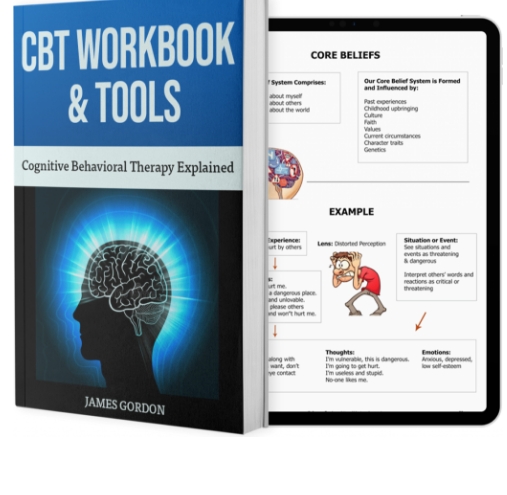In today’s world, depression is increasingly common, affecting millions of individuals and their families. Depression can make family dynamics more challenging, yet building resilience within the family unit is crucial to support both the person experiencing depression and their loved ones. Resilience allows families to navigate hardships, communicate effectively, and maintain emotional strength even during difficult times. In this article, we explore strategies, tips, and actionable steps to help families cultivate resilience and create a support system capable of weathering the storms brought on by depression.
Understanding the Impact of Depression on Families
Depression affects everyone within a family, not just the individual diagnosed with it. The emotional, physical, and psychological toll can be significant. Families may experience stress, feelings of helplessness, and increased tension, all of which can strain relationships. Understanding how depression affects each family member is the first step toward resilience.
Effects on Family Dynamics
When a family member suffers from depression, it can disrupt daily routines and responsibilities. The roles may shift, with family members taking on additional responsibilities or stepping in to provide emotional support. This can lead to feelings of overwhelm and emotional exhaustion for family members, which can weaken the family’s ability to cope. Furthermore, depression can affect family members’ emotional responses, making them feel guilt, frustration, or resentment, which may amplify stress within the home.

Communicating Openly and Supportively
Communication is a critical aspect of resilience. Families need to create an environment where every member feels safe expressing their thoughts and emotions. By encouraging open and supportive communication, families can establish trust, understanding, and a stronger bond. This includes discussing the challenges that depression brings and allowing each member to share how it impacts them personally.
- Active Listening: Practice active listening by focusing fully on the speaker without interruptions. This validates their feelings and encourages them to share openly.
- Non-judgmental Language: Avoid judgmental or critical language, which can make the individual with depression feel isolated or misunderstood.
- Encouraging Expression: Encourage family members to share how they feel, whether through words, creative outlets, or journaling.

Strengthening Emotional Bonds
Strengthening family bonds is essential in building resilience. Strong family connections provide a solid foundation that can absorb the impact of challenging times. Activities that encourage closeness and foster emotional connections can help reduce feelings of isolation among family members.
Building Positive Family Rituals
Creating positive family rituals can provide comfort and stability for everyone involved. These can include weekly family dinners, game nights, or a shared hobby. By establishing routines, family members can create moments of joy and relaxation that serve as a reprieve from the stresses associated with depression.
Expressing Appreciation and Empathy
Showing appreciation and empathy goes a long way in strengthening resilience. Expressing gratitude for one another’s support and efforts can foster a sense of belonging and validation. Similarly, practicing empathy, especially toward the family member struggling with depression, helps reinforce understanding and compassion.

Developing Coping Mechanisms
Every family needs effective coping mechanisms to deal with the challenges of depression. Coping strategies empower families to remain resilient and manage stress in healthy ways, rather than becoming overwhelmed.
Practicing Mindfulness and Relaxation Techniques
Mindfulness and relaxation techniques are effective for managing stress and promoting emotional well-being. Techniques like deep breathing, meditation, or progressive muscle relaxation help family members stay present and reduce anxiety, even during challenging moments.
- Guided Meditation Apps: Apps like Calm or Headspace can offer family members a way to practice mindfulness together.
- Family Meditation Sessions: Try setting aside time each week for family relaxation or mindfulness activities, creating a moment of calm amidst daily challenges.

Encouraging Physical Activity
Physical activity is beneficial for both physical and mental health. Regular exercise releases endorphins, which can help counteract feelings of stress and anxiety. Encourage family members to take walks together, engage in sports, or join an exercise class. Shared physical activity promotes bonding and improves the family’s collective resilience.
Seeking Professional Support as a Family
Resilience doesn’t mean handling everything alone. Families can strengthen their resilience by seeking professional help together, which provides tools, guidance, and support tailored to managing depression’s impact on family dynamics.
Family Therapy
Family therapy is a constructive way to address depression’s effects on the entire family. A licensed therapist can help family members understand their roles, learn better communication techniques, and develop coping mechanisms. Family therapy provides a safe space to discuss issues and learn strategies for managing them.
Education and Resources
Learning more about depression can demystify the condition and reduce stigma. Families should seek reputable resources, books, and workshops to better understand the complexities of depression and gain practical tools for supporting one another.

Promoting Self-Care for All Family Members
Self-care is essential for every family member, not just the one with depression. Taking care of individual needs prevents burnout and allows each person to contribute positively to the family’s resilience.
Prioritizing Personal Time
Encourage each family member to take time for themselves, whether through hobbies, relaxation, or socializing with friends. Personal time is vital for maintaining mental and emotional health, which supports resilience within the family.
Creating Boundaries
Healthy boundaries help family members avoid becoming overwhelmed. Setting limits on responsibilities and emotional involvement enables each person to maintain balance in their life. Boundaries allow family members to provide support without sacrificing their well-being.

Nurturing Hope and Optimism
Hope and optimism can be powerful motivators that help families maintain resilience. While depression can make the future seem bleak, fostering hope encourages family members to believe in improvement and work toward better days.
Setting Small Goals
Setting achievable, short-term goals can create a sense of progress and accomplishment. This can be as simple as establishing a morning routine or planning enjoyable family activities. Small goals build confidence, motivation, and resilience, especially during times when depression may overshadow larger aspirations.
Celebrating Small Wins
When living with depression, progress can sometimes feel slow. Celebrate the small victories, whether they involve improved communication, a positive family outing, or an individual’s progress in managing their depression. Acknowledging these wins nurtures resilience and a positive outlook.

Conclusion
Building family resilience in the face of depression is both challenging and rewarding. By focusing on open communication, strong emotional bonds, and practical coping strategies, families can create a supportive environment that fosters resilience and empowers each member to navigate the difficulties of depression together. With mutual understanding, support, and professional guidance, families can emerge from these experiences stronger and more unified.

Your Depression Has Been in Control Long Enough.
It’s Time to Fight Back
Your Depression Has Been in Control Long Enough.
It’s Time to Fight Back

